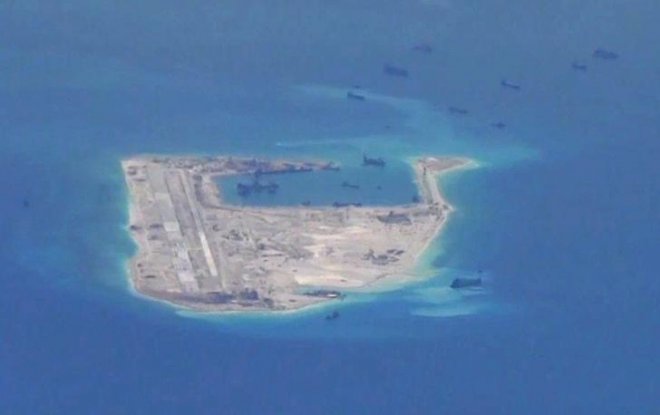
As Philippines turns soft in assert her claim on the South China Sea, the ImageSat International (ISI), a satellite operated by an Israel company, reported and interpreted some images, which shows China is establishing their anti-ship missiles in the Yulin Naval Base in the South of Hainan Island in the South China Sea.
Kyodo News was quoted by Rappler that China has begun building anti-ship surface to air missiles that will have a range of 400 kilometers. ISI interpreted this move as the Asian giant is "apparently beginning to build a no-fly zone in the South China Sea," Rappler quoted Kyodo News. The construction of these missile structures came despite US government's call to observe freedom of navigation and overflight within the Info-Pacific region.
The ISI satellite image report describes the anti-aircraft missile as a structure with HQ-9 launchers, a radar center and launch pads on a hill on the said island. HQ missiles were also noted on Woody Island in the South China Sea, which Taiwan and Vietnam claim ownership.
"If we consider the deployment of anti-aircraft and anti-ship batteries in the area of the Yulin base and the Paracel Islands, we can see that China has begun building a maritime and aerial control corridor in the South China Sea." ISI was quoted by Kyodo news.
While military infrastructures development seems to be expanding in the South China Sea, the Philippines and China have agreed to regularly meet at least twice a year to discuss how to ease tensions in the South China Sea where the Hague court, last year, rejected China's vast claims in the South China Sea and said that those claims have no legal basis.
Contesting his critics, Philippine President Rodrigo Duterte said that though the Hague tribunal strengthened his country's claim on the South China Sea, Chinese President Xi Jinping warned him that if the Philippines intervenes in the issue, "we will go to war."
Duterte claimed that he could not go to war as it will mean a massacre of Filipinos given that China has the biggest army in the world. Moreover, the president argues that Philippines has one of the least developed military assets in the region.








